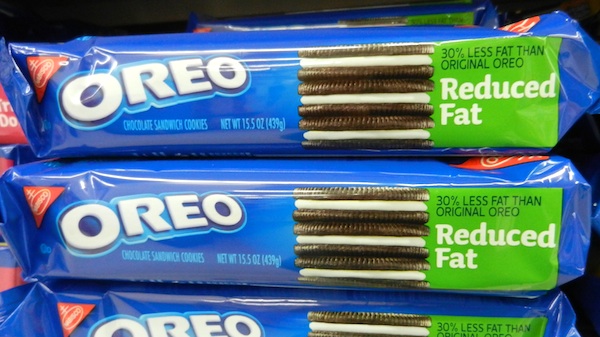A study at Connecticut College suggests that lab rats can get addicted to Oreo cookies just as easily as cocaine. The findings are used to “support the theory that high-fat/ high-sugar foods stimulate the brain in the same way that drugs do.” I call shenanigans.
I am very skeptical of research studies; so, this particular study made me furrow my eyebrows.
The rats were placed in a maze with Oreo cookies on one side and rice cakes on the other. Guess which side they preferred? Of course, most of their time was spent Oreo side. Apparently, rats love the creamy filling of Oreos, as they tend to devour it first before the outer chocolate cookie. (Breaking news: A study shows that humans may have similar eating habits to rats.)
The rats were also placed in another maze with cocaine or morphine on one side and saline (apparently, a rice-cake equivalent) on the other. When the rats reached each substance in the maze, they were injected with the respective substance.
Apparently, “the rats conditioned with Oreos spent as much time on the “drug” side of the maze as the rats conditioned with cocaine or morphine.” According to the researchers’ conclusions, this suggests that Oreos are just as addicting as cocaine or morphine.
Shenanigans.
Although it is interesting to know that Oreos affect our neurological chemistry in a similar way as cocaine (says my inner scientist), why was this study funded? Do we really need neurological evidence to prove that high-fat and high-sugar processed foods have addictive effects?
If Oreos (dare I extrapolate and say “cookies”?) affect us like cocaine, then perhaps the federal government should subsidize Oreo rehab clinics for addicts. Given that Oreos are legally bought and sold across the nation, I suspect their consumption is far greater than cocaine, especially among our youth.
Or better yet, perhaps our nation’s health care system can offer Oreos to patients instead of morphine. This would not only save money, but it might discourage drug-seekers from abusing the emergency room.
Or perhaps this is just evidence that big business is a big “bad-guy” and we are not to blame for our expanding waistlines and poor health.
The researchers seem as though they want to reveal the ugly truth about a popular food item; but, I fear that despite any intentions, it provides yet another reason to shift blame and relieve ourselves of personal responsibility for our health and consumer decisions.
Does this mean that all cookies are bad? No. Does it mean that we humans should never eat an Oreo again as long as we live? No. Does it mean that companies that produce foods like this are evil? No.
This study is evidence that we must strengthen our minds and make more thoughtful purchasing decisions if we do not want to succumb to the addictive affects of indulging.
Read for yourself: Student-faculty research shows Oreos are just as addictive as drugs in lab rats


We must not only strengthen our minds on purchasing decisions but also against believing that every study (“scientific”) in the news is the gospel.
Agreed. Oftentimes, we believe whatever we hear or read without questioning it. Research is great because it helps us understand the world better; but, do we really need to spend so much money proving what common sense provides for free? Thanks for contributing!
There are binge and over eaters anonymous support groups just like AA! Crazy stuff- everything that makes u feel good( with those endorphins being released) can be addictive… Even exercising can be addictive or sun bathing and can lead to bad things like injury or cancer… Blows my mind!
Great point, Michele – even things that are good for us can be addictive. Moderation is always the best method! Serious addiction is quite a deep issue; but for most day-to-day stuff, we just need to be aware of ourselves and keep ourselves in check. Thanks for sharing!